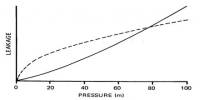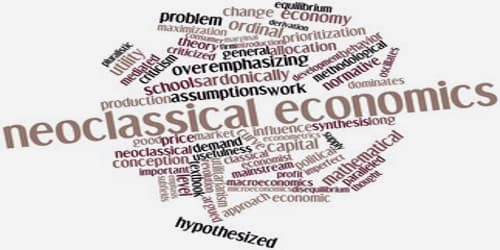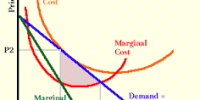Opportunity Cost is an economics term that refers to the value of what you have to give up in order to choose something else. When an option is chosen from alternatives, the opportunity cost is the “cost” incurred by not enjoying the benefit associated with the best alternative choice. It is the return of a foregone option less than the return on your chosen option. The New Oxford American Dictionary defines it as “the loss of potential gain from other alternatives when one alternative is chosen.” It represents the benefits an individual, investor or business misses out on when choosing one alternative over another.
In simple terms, the opportunity cost is the benefit not received as a result of not selecting the next best option. Opportunity cost is a key concept in economics, and has been described as expressing “the basic relationship between scarcity and choice”. The notion of opportunity cost plays a crucial part in attempts to ensure that scarce resources are used efficiently. A fundamental principle of economics is that every choice has an opportunity cost. When economists refer to the “opportunity cost” of a resource, they mean the value of the next-highest-valued alternative use of that resource.
Opportunity cost analysis also plays a crucial role in determining a business’s capital structure. They are not restricted to monetary or financial costs: the real cost of output forgone, lost time, pleasure or any other benefit that provides utility should also be considered an opportunity cost. The opportunity cost of a product or service is the revenue that could be earned by its alternative use. In other words, the opportunity cost is the cost of the next best alternative for a product or service.
Opportunity Cost Formula and Calculation – Opportunity Cost = FO – CO
where: FO =Return on best-foregone option, and CO = Return on chosen option.
The meaning of the concept of opportunity cost can be explained with the help of the following examples:
- The opportunity cost of the funds tied up in one’s own business is the interest (or profits corrected for differences in risk) that could be earned on those funds in other ventures.
- The opportunity cost of the time one puts into his own business is the salary he could earn in other occupations (with a correction for the relative psychic income in the two occupations).
- The opportunity cost of using a machine to produce one product is the earnings that would be possible from other products.
- The opportunity cost of using a machine that is useless for any other purpose is nil since its use requires no sacrifice of other opportunities.
Thus opportunity cost requires sacrifices. It’s an important factor to consider when allocating time or resources to any type of project. If there is no sacrifice involved in a decision, there will be no opportunity cost. In this regard, the opportunity costs not involving cash flows are not recorded in the books of accounts, but they are important considerations in business decisions. It is a useful and proven method for considering different business decisions before they happen.
















